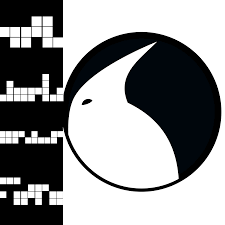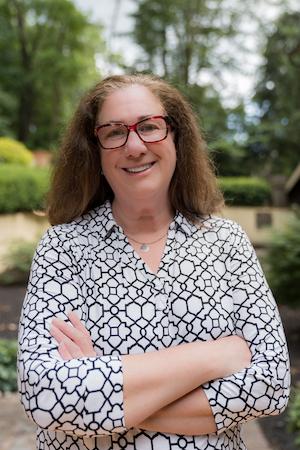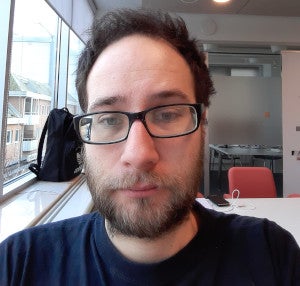Modernizing Healthcare at the Federal Level with Open Source
The Digital Service at the U.S. Centers for Medicare & Medicaid Services (CMS), Department of Health and Human Services (HHS), works to transform the U.S. healthcare system by modernizing systems, improving the design of healthcare experiences, participating in policy development, and delivering value to the government, providers, and patients. CMS leverages a unique model where talent from industry and government stay on for a ‘tour of duty,’ working alongside dedicated civil servants. Over 150 million people rely upon the code stewarded at CMS, much of it already open source, and even more that could become open-source in the coming years.

- Login to post comments
Open Source Matters In Data Analytics: Here's Why
 Open source is critical in data analysis while providing long-term benefits for the users, community members, and business. It's been a little over a year since I wrote my article titled Introducing the Cube Community. As I worked with our community members and other vendors, I've become more convinced of the benefits of open source in data analytics. I also think it's good to remind ourselves periodically why open source matters and how it provides long-term benefits for everyone. One of the first things I heard from the Cube community was that they often received better support in chat from other community members than they did with proprietary software and a paid support plan. Across many open source communities, I find people who are motivated to help other (especially new) community members and see it as a way of giving back to the community.
Open source is critical in data analysis while providing long-term benefits for the users, community members, and business. It's been a little over a year since I wrote my article titled Introducing the Cube Community. As I worked with our community members and other vendors, I've become more convinced of the benefits of open source in data analytics. I also think it's good to remind ourselves periodically why open source matters and how it provides long-term benefits for everyone. One of the first things I heard from the Cube community was that they often received better support in chat from other community members than they did with proprietary software and a paid support plan. Across many open source communities, I find people who are motivated to help other (especially new) community members and see it as a way of giving back to the community.
- Login to post comments
Usability And Accessibility Start With Open Communication
 Amazing though it may seem, we each experience the world differently. That's one reality with over 6 billion interpretations. Many of us use computers to broaden our experience of the world, but a computer is part of reality and so if you experience reality without, for instance, vision or sound, then you also experience a computer without vision or sound (or whatever your unique experience might be). As humans, we don't quite have the power to experience the world the way somebody does. We can mimic some of the surface-level things (I can close my eyes to mimic blindness, for example) but it's only an imitation, without history, context, or urgency. As a result of this complexity, we humans design things primarily for ourselves, based on the way we experience the world. That can be frustrating, from an engineering and design viewpoint, because even when you intend to be inclusive, you end up forgetting something "obvious" and essential, or the solution to one problem introduces a problem for someone else, and so on. What's an open source enthusiast, or programmer, or architect, or teacher, or just everyday hacker, supposed to do to make software, communities, and processes accessible?
Amazing though it may seem, we each experience the world differently. That's one reality with over 6 billion interpretations. Many of us use computers to broaden our experience of the world, but a computer is part of reality and so if you experience reality without, for instance, vision or sound, then you also experience a computer without vision or sound (or whatever your unique experience might be). As humans, we don't quite have the power to experience the world the way somebody does. We can mimic some of the surface-level things (I can close my eyes to mimic blindness, for example) but it's only an imitation, without history, context, or urgency. As a result of this complexity, we humans design things primarily for ourselves, based on the way we experience the world. That can be frustrating, from an engineering and design viewpoint, because even when you intend to be inclusive, you end up forgetting something "obvious" and essential, or the solution to one problem introduces a problem for someone else, and so on. What's an open source enthusiast, or programmer, or architect, or teacher, or just everyday hacker, supposed to do to make software, communities, and processes accessible?
- Login to post comments
CMS Releases Proposed Updates to Medicare MIPS Promoting Interoperability Program for Physicians
 On July 29, 2022 the Centers for Medicare and Medicaid Services (CMS) released a notice of proposed rulemaking (NPRM) related to changes in the Medicare Program Physician Fee Schedule for 2013. Among the proposals in this lengthy document are those related to the Promoting Interoperability Program for physician practices, the successor to the Meaningful Use of Electronic Health Record (EHR) technology that was originally rooted in the 2009 HITECH Act. This program has been evolving over the years and this NPRM proposes some meaningful changes to the public health reporting component which would first be used for calendar year 2023.
On July 29, 2022 the Centers for Medicare and Medicaid Services (CMS) released a notice of proposed rulemaking (NPRM) related to changes in the Medicare Program Physician Fee Schedule for 2013. Among the proposals in this lengthy document are those related to the Promoting Interoperability Program for physician practices, the successor to the Meaningful Use of Electronic Health Record (EHR) technology that was originally rooted in the 2009 HITECH Act. This program has been evolving over the years and this NPRM proposes some meaningful changes to the public health reporting component which would first be used for calendar year 2023.
- Login to post comments
How We Track The Community Health Of Our Open Source Project
 To be an effective leader in an open source community, you need a lot of information. How do I know who the most active members in my community are? Which companies are making the most contributions? Which contributors are drifting away and becoming inactive? Who in the community is knowledgeable about a specific topic? These were just a few of the questions I had when I started leading the Mautic community at Acquia. But the problem was not a shortage of information. On the contrary, there were so many places our community interacted and so many things to track that I was drowning in data. I could access plenty of data sources, but they were not helping me manage the community effectively or answering my questions.
To be an effective leader in an open source community, you need a lot of information. How do I know who the most active members in my community are? Which companies are making the most contributions? Which contributors are drifting away and becoming inactive? Who in the community is knowledgeable about a specific topic? These were just a few of the questions I had when I started leading the Mautic community at Acquia. But the problem was not a shortage of information. On the contrary, there were so many places our community interacted and so many things to track that I was drowning in data. I could access plenty of data sources, but they were not helping me manage the community effectively or answering my questions.
- Login to post comments
How To Make App Stores Friendly To Open Source
 Microsoft recently seemed to propose that Open Source software didn’t belong in the Windows app store. Excuse me? After the news broke, Giorgio Sardo, Microsoft’s General Manager of the Microsoft Store, argued on Twitter that it wasn’t Microsoft’s intent. “We absolutely want to support developers distributing successful OSS apps. In fact, there are already fantastic OSS apps in the Store! The goal of this policy is to protect customers from misleading listings.” Predictably, confusion results. And the kerfuffle over FairEmail and the Google Play Store earlier this year is a good example of how this sort of confusion is not entirely new, leading to questions about intent. I’ve talked with developers and business managers about their experience in preparing software packages for commercial app stores. Universally, everyone reports having issues with app stores’ packaging. These include...
Microsoft recently seemed to propose that Open Source software didn’t belong in the Windows app store. Excuse me? After the news broke, Giorgio Sardo, Microsoft’s General Manager of the Microsoft Store, argued on Twitter that it wasn’t Microsoft’s intent. “We absolutely want to support developers distributing successful OSS apps. In fact, there are already fantastic OSS apps in the Store! The goal of this policy is to protect customers from misleading listings.” Predictably, confusion results. And the kerfuffle over FairEmail and the Google Play Store earlier this year is a good example of how this sort of confusion is not entirely new, leading to questions about intent. I’ve talked with developers and business managers about their experience in preparing software packages for commercial app stores. Universally, everyone reports having issues with app stores’ packaging. These include...
- Login to post comments
Public Health Information Systems Are Not Just About Technology
 Public health information systems have always been a key component of the healthcare ecosystem. Links between clinical care and public health have only been increasing, propelled by the pandemic. As defined by the Public Health Informatics Institute (PHII) in its 2021 Immunization Information System (IIS) Core Competency Model, information systems management is the “application and administration of technologies to securely and effectively meet IIS program and user needs”. The pandemic highlighted the need for public health information systems to collect, track, and monitor vaccine administration for ages newborn through adulthood, and mandated data to be reported or accessible to a broad range of recipients at the local, state and federal level.
Public health information systems have always been a key component of the healthcare ecosystem. Links between clinical care and public health have only been increasing, propelled by the pandemic. As defined by the Public Health Informatics Institute (PHII) in its 2021 Immunization Information System (IIS) Core Competency Model, information systems management is the “application and administration of technologies to securely and effectively meet IIS program and user needs”. The pandemic highlighted the need for public health information systems to collect, track, and monitor vaccine administration for ages newborn through adulthood, and mandated data to be reported or accessible to a broad range of recipients at the local, state and federal level.
- Login to post comments
My Open Source Journey With C From A Neurodiverse Perspective
 Gaming is a big industry. Some studies suggest neurodiverse kids may be even more focused on gaming than other kids. I would tell a neurodiverse high school or college kid that If you learn C, you may be able to learn the basics of, for example, writing efficient drivers for a graphics card, or to make efficient file I/O routines to optimize their favorite game. I would also be honest that it takes time and effort to learn, but that it's worth the effort. Once you learn it, you have greater control of things like hardware. For learning C, I recommend a neurodiverse kid to install a beginner-friendly Linux distro, and then find some tutorials on the net. I also recommend breaking down things step by step, and drawing diagrams of, for example, pointers. I did that to better understand the concept, and it worked for me. In the end, that's what it's about: Find a learning method that works for you, no matter what teachers and other students may say, and use it to learn the open source skill that interests you. It can be done, and anyone can do it.
Gaming is a big industry. Some studies suggest neurodiverse kids may be even more focused on gaming than other kids. I would tell a neurodiverse high school or college kid that If you learn C, you may be able to learn the basics of, for example, writing efficient drivers for a graphics card, or to make efficient file I/O routines to optimize their favorite game. I would also be honest that it takes time and effort to learn, but that it's worth the effort. Once you learn it, you have greater control of things like hardware. For learning C, I recommend a neurodiverse kid to install a beginner-friendly Linux distro, and then find some tutorials on the net. I also recommend breaking down things step by step, and drawing diagrams of, for example, pointers. I did that to better understand the concept, and it worked for me. In the end, that's what it's about: Find a learning method that works for you, no matter what teachers and other students may say, and use it to learn the open source skill that interests you. It can be done, and anyone can do it.
- Login to post comments
The Changing Face of Public Health System Procurement
 The development and acquisition of public health systems is poised to change. Historically, public health agencies had the classic choice when it came to acquiring a new data system. Either they developed the system themselves – usually based on a belief that their requirements were “unique” – or they licensed a COTS/GOTS product from the limited choices available in a small market. Typically, agencies that chose to develop solutions were forced to use a waterfall approach as government procurement is not well suited to the flexibility of Agile systems development. Some agencies have been able to leverage open source offerings. While most do not have the wherewithal to support open source products themselves, many have formed strong partnerships with other organizations, both for-profit and nonprofit, to take advantage of these systems.
The development and acquisition of public health systems is poised to change. Historically, public health agencies had the classic choice when it came to acquiring a new data system. Either they developed the system themselves – usually based on a belief that their requirements were “unique” – or they licensed a COTS/GOTS product from the limited choices available in a small market. Typically, agencies that chose to develop solutions were forced to use a waterfall approach as government procurement is not well suited to the flexibility of Agile systems development. Some agencies have been able to leverage open source offerings. While most do not have the wherewithal to support open source products themselves, many have formed strong partnerships with other organizations, both for-profit and nonprofit, to take advantage of these systems.
- Login to post comments
The 2022 Humanitarian OpenStreetMap unSummit
The 2022 Humanitarian OpenStreetMap Teams unSummit is going to bringing communities, partners, and supporters around open mapping, OpenStreetMap, humanitarian response, and social impact. In our ongoing mission to bring together communities, partners, collaborators, and supporters of humanitarian open mapping, we are trying a fresh approach to the HOT Summit. Instead of hosting a single event, this year we are investing our time and resources in supporting global, regional, and local conferences and community events around the world to bring the spirit of the Summit to thousands of new people. We are calling this the "HOT unSummit," emphasizing the continuity of this new approach with HOT's flagship annual event without claiming a 'higher ground' compared to the events we partner and collaborate with. The HOT unSummit will be a world tour of collaborating events over the course of 2022, and you can watch this page for the latest updates on what's coming up.

- Login to post comments